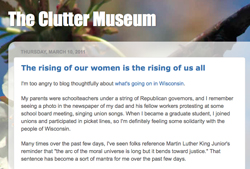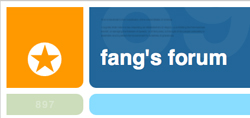During the holiday season last year, two things were proving particularly worrisome: pneumonia, which was also in my lungs, and guppies, of which there were far too many in the tank.
Once again, I start the new year with too many guppies and crud in my lungs (but hey, not yet pneumonia).
I need to break out of this cycle. Maybe someone will find a guppy-based yet vegetarian cure for bronchial distress? (Alternatively: self-cleaning, self-culling guppy tanks?)
I have too many metaphorical guppies as well. I declared last year’s theme to be completion, and I did make big progress on a number of projects, but I finished none of the most important ones. I’m hoping to get a couple of 80% to 90% completed articles out the door within the next couple of months, as well as to launch a new public history project in a couple of weeks (which at this point depends as much on a programmer as it does me).
This semester’s primary focus, however, is a new research project—part of the above public history project—on the history of health and wellness in Idaho, for which I have received one of my university’s coveted Arts & Humanities Institute fellowships. I’ll be working with the largely uncurated medical collection of the state history museum, trying to make sense of both the artifacts and what they suggest about Idahoans’ understandings of health and wellness. It’s a diverse collection, including everything from an iron lung to a Chinese apothecary’s herbs to a Revigator, and spanning the human lifecycle from birth (obstetrical forceps) to death (a mortician’s cosmetics). The history of medicine is a new field for me, though I am fortunate to have had, in grad school and beyond, a mentor who has written about U.S. Americans’ (often wacky ideas) about health and wellness, and her findings will undoubtedly inform the direction of my own research. Idaho has long had a physician shortage, as well as a good number of residents who might not be able to afford medical care, so I’m expecting to find a good deal of creativity and flexibility in self-care. I’m looking forward to the research–and not just because it comes with a semester-long break from teaching. 

